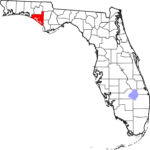On March 21, 2018 the city of Flint received a letter from state Surface Water Treatment Engineer Robert London addressed to Flint Mayor Karen Weaver detailing ten still unresolved issues and incomplete recommendations first identified in a 2017 sanitary survey of Flint’s water system. The state environmental department stated that it does not have confidence that the city can continue to demonstrate the technical, managerial and financial capacity necessary to consistently operate the water system in accordance with the Michigan Safe Water Drinking Act.
In this same time frame Gov. Rick Snyder has announced that on April 6 that the state would close bottled water distribution centers in Flint, citing almost two years of state testing that has shown the once-elevated lead water levels had fallen below federal standards. Not everyone agrees with the move according to Senate Minority Leader Jim Ananich, D-Flint, who has argued the state should continue bottled water service until the ongoing lead pipe replacement is complete. Ananich has noted that the Snyder administration is struggling to try to rebuild the public’s trust in Flint, where residents were told tainted water was safe to drink after the city temporarily switched to Flint River water in April 2014.
The Governor’s Snyder spokeswoman Anna Heaton has stated that the Flint water system is producing very high quality drinking water and distributing it around the city, and that is backed up by both state and independent testing results. The city of Flint switched back to Detroit water in late 2015 from using the Flint river and intends to now stick with that source rather than join the new Karegnondi Water Authority, as was previously planned.
Lead levels have tested below 4 parts per billion so far, this year in Flint, according to the state. That’s well below the federal action level of 15 parts per billion and the tougher 10 parts per billion standards Gov. Snyder has proposed. Still as the environmental department letter said, the city has not developed an emergency response plan or provided details about maintenance or operating procedures for water hydrants, valves, meters and service lines. The city of Flint has not completed an inspection of a Cedar Street water reservoir. It also has not filled a vacant cross connection manager position and continues to struggle with water system staffing issues. The road to rebuilding the public trust is still a work in progress in this Michigan city.






 25 May 2018
25 May 2018
 Posted by BP Journal
Posted by BP Journal 













